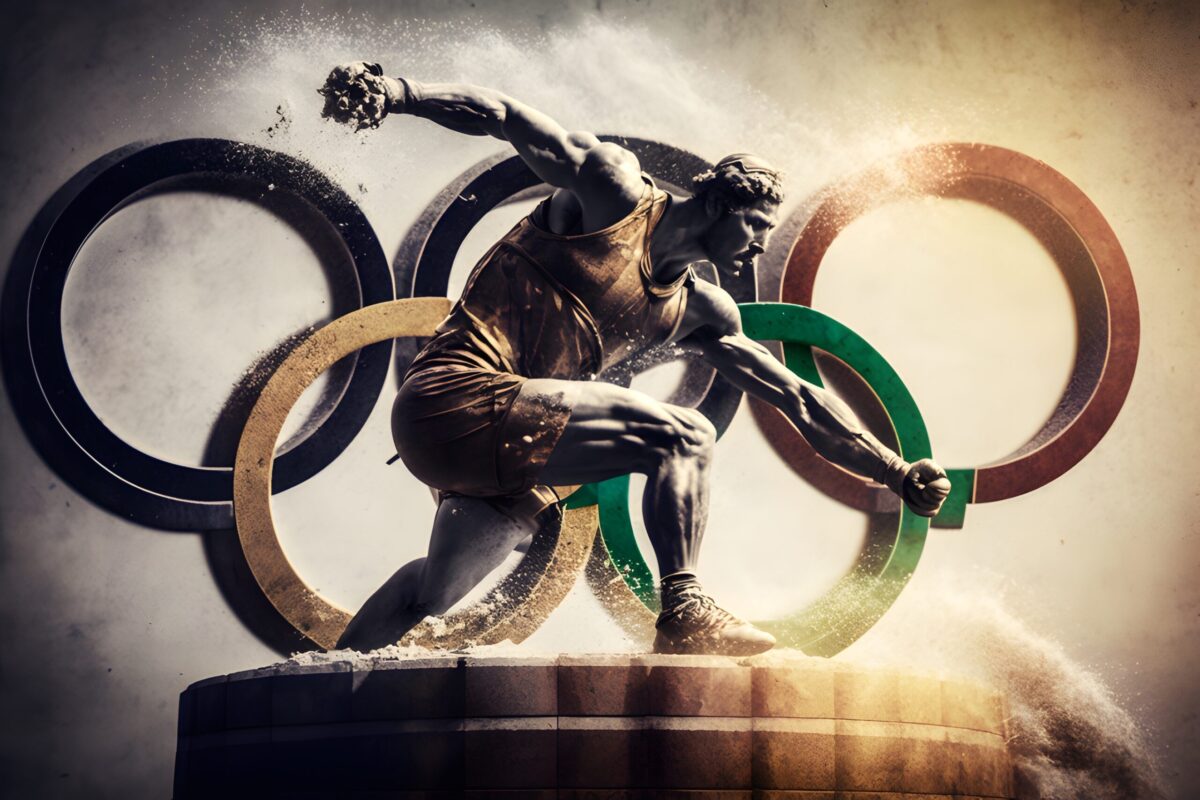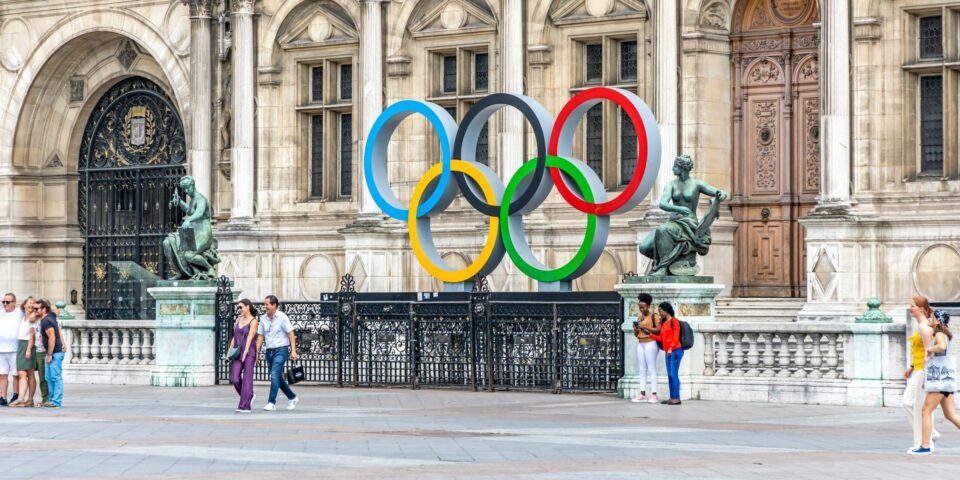We hope for a better world every four years – A world where everyone can compete

Another Olympic Games is upon us, and spectators around the world are excited. But once again, these Games are tainted by politics and are incomplete. Moreover, it’s not like the previous ones were “clean.” Let’s look at their “bumpy” path and history
The modern Olympic Games have been revived several times, never in a satisfactory, international manner. The first to start was the English back in the 17th century with the “Cotswold Olimpick Games” (yes, with a “K”), held annually in Chipping Campden between 1612 and 1642, and a few more times after that, in several sports. After the French Revolution, the first with the metric system, the L’Olympiade de la République was held in 1796, 1797, and 1798 in France, again to revive the Greek spirit and in several sports. Next, the Swedes tried in 1834 and 1836 with the Olympic Games only for Swedes, in the city of Ramlösa, and again after a pause in Stockholm in 1843 with an impressive 25,000 spectators. By 1859, the idea was revived in Britain where the Wenlock Olympian Games were held, only for the British, of course, and this competition continues annually to this day. Between 1862 and 1867, the Grand Olympic Festival was held annually in Liverpool, which was the first to be open to foreigners (every “gentleman amateur” could participate). The Olympic Games in Great Britain were held in 1866 at the Crystal Palace in London. Even Lajoš Vermeš from Subotica organized his Olympics in Palić over 100 years ago.
And now, the Games for real
However, the international and official Olympic Games had to wait until 1896 when they made a triumphant appearance. But already in 1900 in Paris, a shameful gesture occurred as they were held within the World’s Fair over several months, and barely anyone noticed them in the fair-like atmosphere. In 1904 in St. Louis, they reached their lowest point when numerous fairground sports were introduced, awarding medals for trivialities, and those medals are no longer counted. To improve matters, the IOC again awarded the host city to Athens, and in 1906, the very successful 4th Olympic Games or Intercalated Games were held, which were officially counted as Olympic Games for some time before being removed from the statistics. In London in 1908, there was stabilization, but since the Games lasted more than 6 months, they were not the central event as they are today. Stockholm shortened the Games to “only two and a half months” in 1912, and Berlin did not hold the 6th Olympiad in 1916, leading to the 7th Olympiad in Antwerp, Belgium (lasting 18 days). Here began a wave of disqualifications and boycotts that continues to this day: Hungary, Germany, Austria, Bulgaria, and the Ottoman Empire were banned from competing in the Games (as they were defeated in the Great War). Soviet Russia had just emerged from a civil war and decided not to attend the Games. Germany did not return to Olympic competition until 1928 and instead hosted a series of games called the Deutsche Kampfspiele. Nazi Germany organized extremely successful but highly politically charged Games in Berlin in 1936. Tokyo in 1940 and London in 1944 were left without the Games.
Moscow held impressive Games in 1980, for which we do not know if they were profitable, as all costs were supported by the USSR government
Boycotts, exclusions, and finances
This trend continued after the Second World War. In 1948 in London, Germany, Romania, Bulgaria, and the USSR did not participate, but by Helsinki in 1952, the Games were quite complete with these countries joining, and only East Germany (GDR) did not participate. In 1956 in Sydney, China (due to Taiwan’s participation), Cambodia, Egypt, Iran, Lebanon (Suez Crisis), Spain, Switzerland, and the Netherlands (Soviet invasion of Hungary) boycotted the Games. In 1960 in Rome, China boycotted again, and in 1964 in Tokyo, China, Indonesia, and South Korea boycotted. China continued the boycott in 1968 in Mexico as well as in 1972 when Rhodesia was expelled a few days before the Games. During the Munich Games, the most tragic, again political, event occurred when Palestinian terrorists held and killed Israeli athletes in the Olympic Village, casting a shadow on Germany as the host and coloring the sporting event with grief and hatred.
In 1976, Canadian Prime Minister Trudeau banned Taiwan’s attendance, prompting China to return, but 29 countries, mostly from Africa, boycotted the Games because the IOC did not expel New Zealand, whose rugby team had toured South Africa earlier that year. The boycott was led by Congolese official Jean-Claude Ganga. To add to the chaos, some of the nations that boycotted (including Morocco, Cameroon, and Egypt) had already participated but withdrew in protest after the first few days of competition. Senegal and the Ivory Coast were the only African countries to compete in the Games. In solidarity, Afghanistan, Albania, Burma, Iraq, Guyana, Sri Lanka, and Syria also joined the boycott under Congo’s leadership. South Africa itself had been banned from the Olympic Games since 1964 due to apartheid policies, so the entire boycott, which “darkened” the 1976 Olympics, came about because of one rugby team’s tour from the other side of the world. Many Montreal citizens considered the Olympics a financial disaster for the city, as Montreal and the entire province of Quebec faced debts for 30 years after the Games, up until 2006!
Moscow held impressive Games in 1980, for which we do not know if they were profitable, as all costs were supported by the USSR government. However, all hopes that all nations would unite at this competition were dashed due to Brezhnev and Carter. An even larger boycott, led by the USA, occurred in protest against the Soviet invasion of Afghanistan at the invitation of the then-government in 1979. The Soviet invasion prompted President Jimmy Carter to issue an ultimatum on January 20, 1980, stating that the USA would boycott the Moscow Olympics if Soviet troops did not withdraw from Afghanistan within a month. This, of course, did not happen, and 65 invited countries and regions did not participate in the Olympic Games. The newly established Islamic Republic of Iran, under Ayatollah Khomeini, which was hostile to both superpowers at the time, boycotted when the Islamic Conference condemned the invasion. As the USSR did not have good relations with China, they also boycotted, and Taiwan did not return because their relations were even worse.
Of course, there is no end to retaliations here, as one such revenge followed – the USSR and other countries retaliated against the USA at the next Olympics in Los Angeles in 1984 (that winter, Sarajevo managed to host almost all countries in the world as a neutral territory) – in the end, 19 countries boycotted the games, but China returned as Taiwan was finally renamed “Chinese Taipei,” emphasizing China’s sovereignty over the island. Interestingly, after the financial disaster and boycotts of the games in Montreal and the terrorism in Munich, no one even dared to bid for the Olympics, so the only candidates were Los Angeles and Tehran, which announced its candidacy as a sign from Shah Reza Pahlavi to show the world. Tehran withdrew, and LA remained the only candidate, ready to face the “storm,” but it turned the Games into the most profitable event that cities would later compete to host. McDonald’s offered hamburgers, fries, and Coca-Cola in a coupon game every time an American athlete won a medal in a given sport. Since Eastern European countries did not participate, so many prizes were given out that this was parodied in The Simpsons.
Seoul 1988 seemed like a sign of calming tensions, but not everything was perfect – North Korea and its ally Cuba boycotted the Games. Ethiopia, Albania, and the Seychelles did not even respond to the IOC’s invitations. In 1992, the Games in Barcelona revitalized the city, but unfortunately, Yugoslavia was banned from participating, and Macedonia did not participate either, so these Games were not complete and free of politics. ETA threatened terrorist attacks, which were prevented. The Games had a huge impact on the city and the image of Barcelona. They secured billions of dollars for infrastructure investments, which are considered to have improved the quality of life in the city and its attractiveness for investment and tourism. Barcelona suddenly became one of the most visited cities in Europe, following Paris, London, and Rome, and has maintained that position to this day.
 The Golden age and another decline
The Golden age and another decline
The 1996 Games were supposedly expected to go to Athens for the 100th anniversary of the first modern Games, but allegedly due to Coca-Cola, they went to its headquarters – Atlanta! The 1996 Olympic Games brought enormous profit, aided by record revenues from sponsorship deals and broadcasting rights, as well as reliance on private financing, among other factors. There were some criticisms of the apparent over-commercialization of the Games, along with other issues raised by European officials. The event had a lasting impact on the city; Centennial Olympic Park led to the revitalization of downtown Atlanta. Unfortunately, a terrorist attack that killed two and injured 111 people marred the impression, and black demonstrators tried to draw attention to the fact that Georgia’s flag still featured the Confederate war flag. They did not succeed – it was only changed recently, about 30 years later. This time, almost the entire world participated! The same happened in Sydney, where only Afghanistan was excluded, but the Taliban had already enacted laws banning sports, so it was unlikely they would have sent anyone anyway.
Seoul 1988 seemed like a sign of calming tensions, but not everything was perfect – North Korea and its ally Cuba boycotted the Games
Athens organized the Olympics in 2004, revitalizing the city with a metro, a new airport, and pedestrian zones, as did Beijing in 2008 in a “logistical triumph,” London in 2012, and Rio in 2016, and finally, all countries participated. This period was the pinnacle of sporting competition and world peace, as in Rio, both the Independent Team and the Refugee Team appeared, and everyone finally managed to compete, including stateless persons. Unfortunately, by 2021 in Tokyo (due to the pandemic), Russian athletes were collectively accused of doping and could only compete upon proving they were not involved (the presumption of innocence did not apply here!), and the situation worsened in Paris this year when Belarus and Russia were excluded entirely due to the war in Ukraine (as if no other country has ever been at war), making the Games “flawed” again after so many good years. Unfortunately. But, we hope for a better world every four years. A world where everyone can compete.